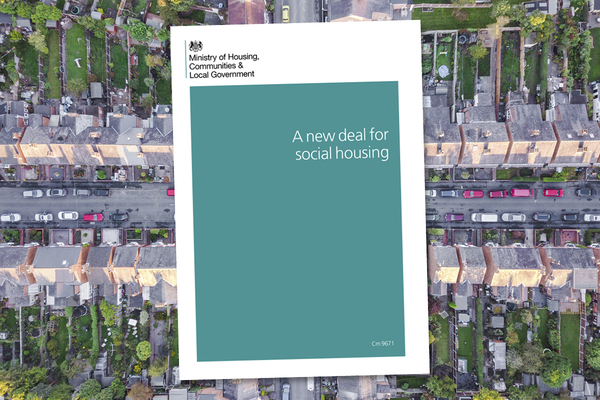You are viewing 1 of your 1 free articles
Eight-week delay for complaints adds stress and frustration and should be removed
The ‘democratic filter’ method of resolving complaints has failed to deliver and should be scrapped, argues interim Housing Ombudsman Andrea Keenoy
One of the areas raised in the Social Housing Green Paper which hasn’t received much attention so far is the barrier to redress caused by the ‘democratic filter’.
This is the requirement for social housing residents to wait eight weeks before they can access the Housing Ombudsman Service unless they are referred to us by a ‘designated person’.
This statutory requirement was introduced at the height of localism with the intention that local MPs, councillors or tenant panels (designated persons) would be best placed to help resolve disputes.
“Ninety-three per cent of our complainants ended up waiting the full eight weeks to access our service last year.”
They would use their local knowledge to resolve issues affecting local residents as opposed to entering the more bureaucratic and time-consuming approach of a formal ombudsman’s investigation.
These arrangements have largely failed to deliver – 93% of our complainants ended up waiting the full eight weeks to access our service last year after completing the landlord’s complaint process.
That adds further stress and frustration on top of the housing problem they are living with every day.
Around half of the respondents to our 2017-18 Business Plan consultation said they found the designated person arrangements confusing and that they added little value.
Undoubtedly, tenant panels and some MPs and councillors do take the time to assist residents and resolve issues, but removing the democratic filter would not prevent successful arrangements from continuing.
In a green paper that seeks to address the stigmatisation of social housing residents, it is interesting that this is one of the very few groups that face such a barrier to accessing an ombudsman.
“Around half of the respondents to our 2017-18 Business Plan consultation said they found the designated person arrangements confusing and that they added little value.”
That’s why we will be supporting full removal of the democratic filter in our response.
Overall, the process of complaining should be fast and effective from start to finish. As well as removing this unnecessary barrier, we need to speed up our complaints process.
We are working hard to reduce the time we take to determine cases.
And at the front end, landlords need to ensure that their complaints handling practices are fair, put things right when they have gone wrong, and that complaints are used to help improve services.
“We are working hard to reduce the time we take to determine cases.”
We intend to help landlords by setting clearer examples of what good looks like to support sector-wide improvement.
Over the coming months we will be asking the sector for their views on our plans for the next three years.
While the outcome of the green paper consultation is not yet known, we believe that the themes of increased accessibility, hearing the resident voice, fast and effective redress, and greater transparency have set a clear direction. These are reflected in our new strategic objectives.
Andrea Keenoy, interim Housing Ombudsman













